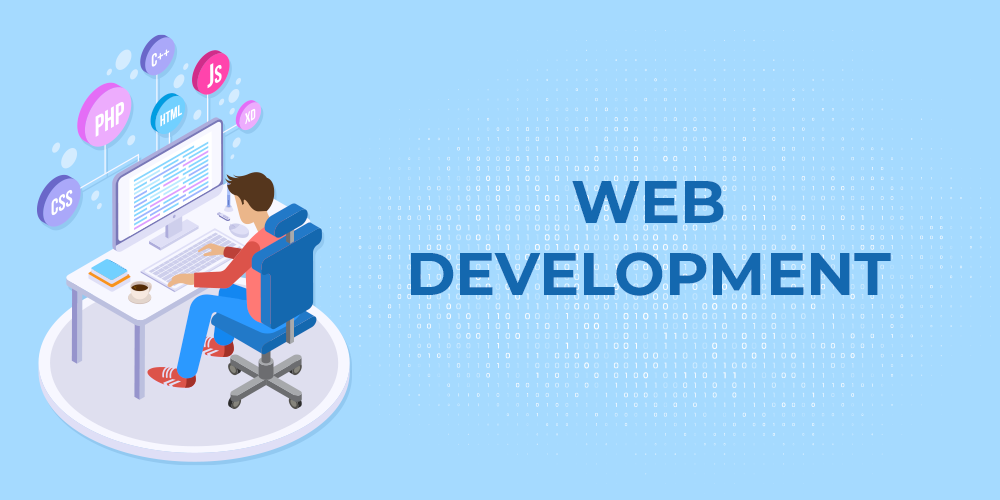Introduction
Today, most organizations rely on websites for a solid online presence. We use websites for different purposes. The websites range from online shopping sites to government portals. This has generated a huge demand for skilled web developers. Numerous companies in cities like Delhi NCR, Gurgaon, and Noida have top web development companies that constantly hire skilled professionals. Therefore, aspiring professionals are suggested to join the Web Development Courses for the best training. A Web Development course is a dynamic educational experience. These training courses equip individuals with the skills required to create, maintain, and innovate on the digital platforms. Today, web development has become a vital skill, as websites serve as the gateway to the online world.
In this article, we shall explore the key concepts that you can learn from a web development course.
What Do Web Development Courses Cover?
Web Development is a multidisciplinary field. This field encompasses a wide range of technologies and practices.
A well-structured course can cover the following aspects:
1. HTML (Hypertext Markup Language): HTML is the foundation of web development. It is essential for creating the structure and content of web pages.
2. CSS (Cascading Style Sheets): CSS is an essential component, used to control the presentation and layout of web pages. A Web Development course trains students to style web pages with different fonts, colours, and layouts.
3. JavaScript: It is a crucial scripting language used in web development. Understanding JavaScript is essential for creating responsive and user-friendly websites.
4. Responsive Design: With the growing use of mobile devices, a responsive web design has become quite essential. The web development course trains students to create websites that adapt to various screen sizes and devices.
5. Version Control: Many courses introduce the concept of version control using tools like Git. This is crucial for collaboration in a team, tracking changes, and ensuring code integrity.
6. Server-Side Scripting: Moreover, students often learn server-side scripting languages like PHP, Python, or Node.js. This enables them to develop dynamic web applications, interact with databases, and so on.
7. Databases: Understanding databases is fundamental for building data-driven web applications. The courses help students learn how to design, query, and manage databases.
8. APIs (Application Programming Interfaces): Web development courses teach the concept of APIs. The APIs allow developers to interact with external services and data sources. This is valuable for integrating third-party services into web applications.
9. Frameworks And Libraries: Moreover, students often get exposed to popular web development frameworks and libraries. These include React, Angular, or Vue.js for front-end development and Express.js or Django for back-end development.
10. Web Security: Web developers must be conscious of security issues. The courses cover topics like Cross-Site Scripting (XSS), Cross-Site Request Forgery (CSRF), security best practices, etc.
11. Web Hosting And Deployment: Learning how to host and deploy web applications is crucial. Students gain knowledge about web hosting options, domain management, and deploying their projects to real web servers.
12. Performance Optimization: In the real world, website speed matters. Students learn various techniques to optimize the performance of their web applications, such as minification, compression, and asynchronous loading.
13. Debugging And Troubleshooting: Additionally, a significant part of web development involves identifying and resolving issues. A course teaches debugging techniques and best practices for troubleshooting common web development problems.
14. User Experience (UX) And User Interface (UI) Design: While not the primary focus, many web development courses touch on UX and UI principles to help students create websites that are user-friendly and aesthetically pleasing.
15. Project Management: Furthermore, understanding project management concepts, such as Agile and Scrum, can be valuable for coordinating web development projects effectively.
Conclusion
To summarise, the Web Development courses provides a solid foundation in various practices necessary to create well-functioning and attractive websites. In a rapidly digitizing world, web development skills are in high demand. This makes web development training a valuable investment for anyone looking to enhance their skill set. The Web Development Institute in Delhi helps you learn various industry-relevant skills, and get placed in reputable web developing companies. Thus, you can become a front-end developer, back-end developer, or full-stack developer with effective web development training.


